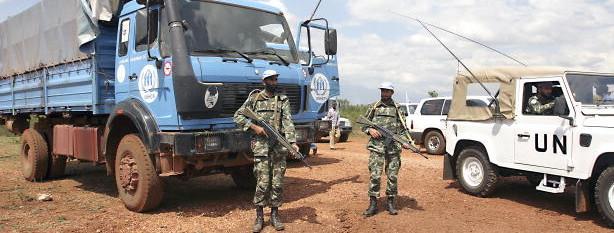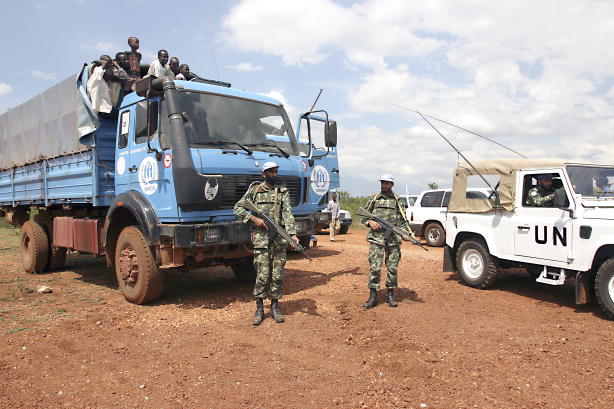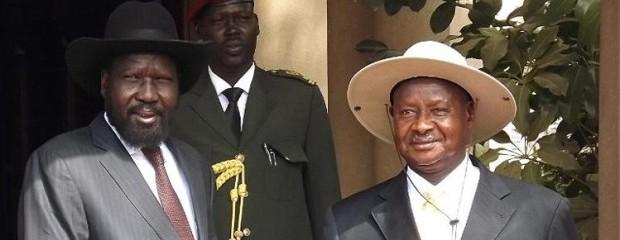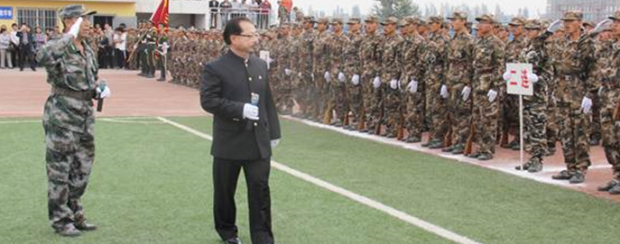Burundi must avoid repeating the mistakes of Arusha

Negotiations in Burundi cannot come soon enough, but as in the 2000 Arusha Accords, a focus on quick short-term solutions will only come back to haunt the country.

A UN peacekeeping contingent in Burundi as part of the Arusha Accord of 2000. Photograph by UN Photo/Martine Perret.
Since independence, Burundi has gone through a series of crises. And following 1972, 1988, and 1993, the country is now living through another.
This one comes 15 years after the historic Arusha Peace Accord, which mobilised the great and powerful of that time, including Bill Clinton and Nelson Mandela, as brokers in order to bring an end to a bloody 12-year civil war. Among other things, the Accord sought to contain or diffuse the ethnic imbalances within the political and military spheres.
By contrast to that civil war, which was largely fought along ethnic Tutsi-Hutu lines, the current crisis was sparked by President Pierre Nkurunziza seeking a third term in office in contravention of the Arusha agreement.
Over the months of April and May, protesters took to the streets in opposition to this move. Resistance started as peaceful demonstrations and were repressed with disproportionate force by police. But over the course of the year, with Nkurunziza running and winning a third term in July, the situation has escalated.
Several hundred Burundians have now been killed, thousands have fled the country, and the economy has collapsed. In the face of this, as well as international pressure, the government is gradually realising that there is no other way out of the crisis but to negotiate with its opponents. While violence in the country continues, Uganda’s President Yoweri Museveni is understood to be working on the list of people who will be invited for negotiations with some delegations already in Kampala, but talks have yet to start officially.
When they do, what lessons can be learnt from the Arusha Accord and its seeming breakdown 15 years later?
What should be negotiated?
Perhaps the most acute problem at the centre of Burundi’s ills today is the absence of the rule of law. Both the Hutu and Tutsi communities suffered mass atrocities in the civil war, but those responsible never faced justice. Everyone agrees that the current crisis is mainly political rather than ethnic, but the same impunity has continued around the more recent killings.
This situation can be traced back to the Arusha Peace Accord. The agreement recommended a commission for truth and reconciliation, which was meant to bring light to past crimes and end impunity but never materialised. Meanwhile, the accord’s failure to establish an independent judiciary has contributed to this impunity and bad governance.
The priority for those who negotiated the Accord was power-sharing and an end to the violence rather than justice. The coming negotiations should therefore make sure the same mistake of focusing on the short-term over the long-term is not made again.
At the beginning of the current crisis, the main objective of the opposition was simply to prevent Nkurunziza’s third presidential term. However, if this remains the group’s only goal in talks, they will only serve to replace the person at the top of a bad system without addressing the core problems of impunity and injustice. This would be a missed opportunity to bring true change the country so badly needs. Unless the protagonists find fresh inspiration, the negotiations are likely to revolve around power-sharing once again. It is also likely, as happened in Arusha, that those responsible for the ongoing massacres will seek some level of immunity, all in the name of finding a compromise.
Another mistake that could arise in the negotiations, and one that international actors may push, is a rush to organise fresh elections. This should be resisted. Rather, what might help today – as was the case 15 years ago – is to realise that in the current context of mistrust, especially with some politicians seeking to resurrect ethnic tensions, elections are perhaps the last thing Burundi needs.
What might be more effective is a technical government (a so-called national unity government) in which powers are balanced between protagonists, and more importantly in which the judiciary is independent. The problems of Burundi are deep and impossible to solve in a few days of negotiations, but, as imperfect as it would be, it is possible to negotiate a technical government balanced by a functional and independent judiciary and a strong civil society. The coming three to five years could then be used to disarm all militias and armed groups, and to engineer a large and open consultation in the country to define its future direction.
During this time, political parties, civil society and independent media could reorganise and play their democratic role. It would additionally allow time to set up an independent commission to investigate all massacres and crimes against humanity, including economic crimes since independence, and to bring the culprits to justice. It would also allow time for setting up a sort of Marshall Plan to save the country from imminent economic collapse, including resettling refugees and displaced people. Only at the end of these three to five years would elections be organised.
Who will be part of these negotiations?
The question of who will be involved in the talks is crucial. Many opposition leaders and members of civil society have coalesced around a platform called CNARED (Conseil National pour le Respect de l’Accord d’Arusha et de l’í‰tat de Droit au Burundi). This movement is made up of people with very different visions for the future of the country and whose only common ground is to see the current president pushed out of office. Some of its members are well known for their opportunism, and some are believed to be directly or indirectly involved in past or ongoing crimes. Such personalities would benefit from a continuation of the status quo in terms of how the government operates and the country’s weak institutions.
In view of this, if Burundi is not to repeat the mistakes of Arusha in which a similar situation prevailed, the individuals who take part of the negotiations matter hugely. If it becomes a club of old players, then the same causes will produce the same effects. The floor should therefore be opened for fresher minds who have not been involved in past atrocities and governments, who have no personal economic interests to defend, and who hold a long term vision for Burundi rather than a short-sighted power-sharing attitude.
It is crucial that youth both in country and diaspora as well as civil society are well represented. Efforts should be made to give space to men and women of integrity from all ethnic and social backgrounds who have previously been forced into silence by a system that privileges mediocrity and lawlessness.
The demand for change
Whether these conditions for negotiations will be met remains to be seen, but what is clear is that there is an unprecedented demand in Burundi for change and respect for the rule of law. The determination of the youth who have taken to the streets both in Burundi and abroad this year demonstrate their deep-seated sense of disenfranchisement with the status quo.
Those who will be negotiating have a moral duty to not ignore these groups. They have sacrificed everything, including many of their lives, and will not settle for more of the same old system. They deserve better, and will demand it.
Izobukiza is a Burundian public health scientist who currently lives abroad. He lived through the 1993 crisis in Burundi and narrowly escaped death several times. He left the country to pursue postgraduate studies and after that continued to work in and on Africa, with his base in Europe.




The author of this text failed to tell what should be negotiated and who should take part in the négociations. My idea is that the problems in Burundi should be addressed together with the problems of Rwanda. The political solutions imposed on Rwandan people is the worst ever and Burundi will never feel safe if Rwanda still have the same problem.
On political ground, the same solutions should be imposed on both Rwanda and Burundi. And those solutions should include a real power-sharing agreement with democratic tones. I mean, all political parties should have ethnic alternance at their heads. The president of the presidential parti as well as the presidents of the main opposition parties should be of different ethnic group than that of the country ‘s president. This is to ensure an ethnic alternance at the head of the country, both in Burundi and Rwanda.
On military ground, the 2000 Burundi’s Arusha agreement should be imposed both in Rwanda and Burundi: equal ethnic quotas in the police and the army.
The core problem is not ethnic but economic. At this point, we’ve got a narrow choice. It’s an international issue and it concerns the whole region or rather the whole Africa. It’s about the west seeking free or cheap raw materials. Everyone with a minimum IQ knows that the genocide in Rwanda was a proxy war between the US and France. The genocide of Congolese people is again a US war for raw materials.
The crisis in Burundi is again a western war for the control of Burundi ‘s nickel, copper, gold, casterit, coltan… minerals. It started with the Russian company Kermas winning the bide on Musongati minerals through its local agency Burundi mining industries. The west did not accept it, and sought to impose it’s biased contract.
That’s the core of the problem in Burundi, DR Congo, Nigeria, Libya, Syria, Iraq, … everywhere the west seek to impose biased contracts for free or cheaper raw materials against the core interest of the concerned countries